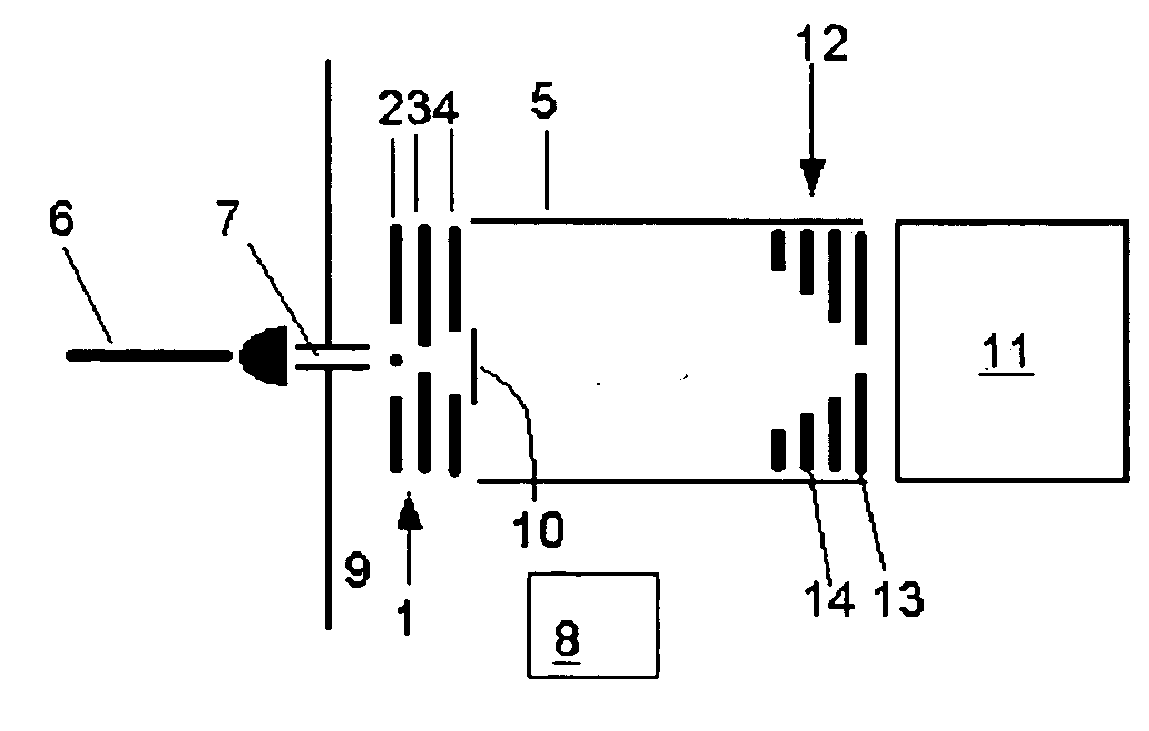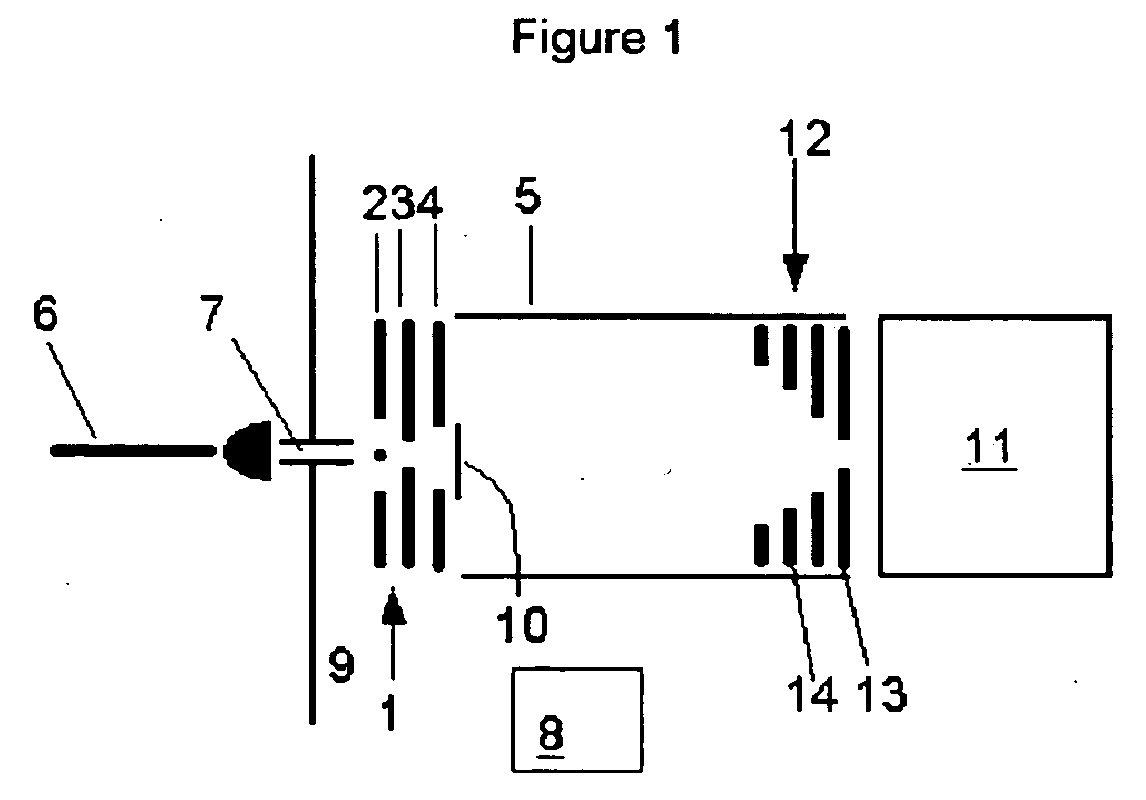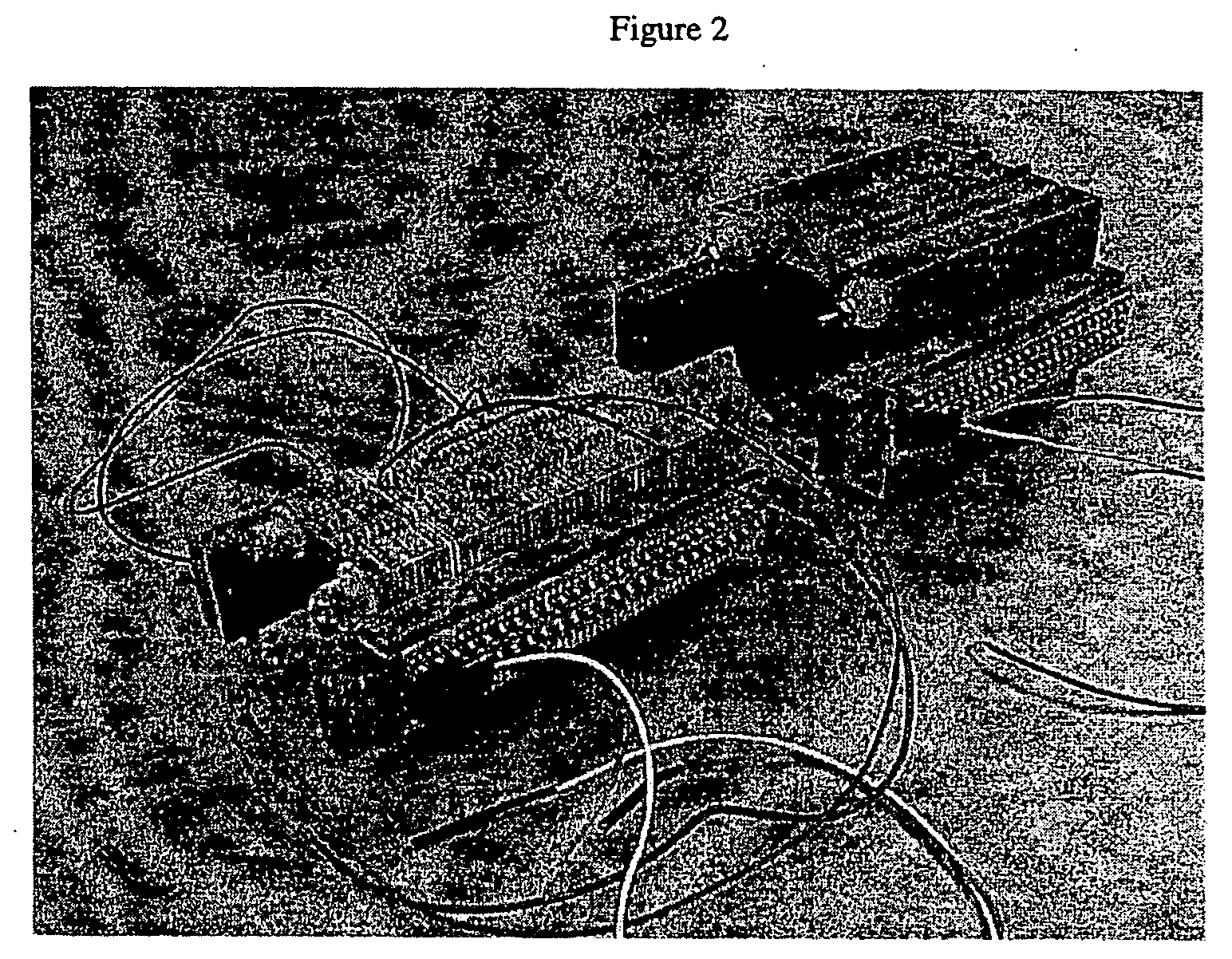High performance ion mobility spectrometry using hourglass electrodynamic funnel and internal ion funnel
a technology of ion mobility and funnel, which is applied in the direction of particle separator tube details, instruments, separation processes, etc., can solve the problems of ims/ms systems not reaching their full potential as analytical instruments, and the limitations of techniques, so as to increase the sensitivity of ion mobility spectrometry/mass and reduce the loss of ions
- Summary
- Abstract
- Description
- Claims
- Application Information
AI Technical Summary
Benefits of technology
Problems solved by technology
Method used
Image
Examples
Embodiment Construction
[0028] A device was constructed to demonstrate the advantages and application of the present invention consisting of three sections: an ion source, and ion mobility spectrometer (IMS) drift tube for spatial ion separation, and a mass spectrometer for mass analysis of separated ion packets. Except as noted below, the device utilized the general arrangement of each of these components as shown in the conceptual drawing shown in FIG. 1. While all voltages listed below are for positively charged ions (cations), those having skill in the art will readily recognize that the polarities can readily be inverted to analyze negatively charged ions (anions).
[0029] This ion source section comprises an electrospray ionization (ESI) source that generates solvated ions, a heated capillary that desolvates them, and an hourglass electrodynamic (ED) ion funnel that further desolvates and focuses them into IMS. The ESI and the heated capillary were standard instruments available commercially from Wate...
PUM
| Property | Measurement | Unit |
|---|---|---|
| length | aaaaa | aaaaa |
| internal diameter | aaaaa | aaaaa |
| voltages | aaaaa | aaaaa |
Abstract
Description
Claims
Application Information
 Login to View More
Login to View More - R&D
- Intellectual Property
- Life Sciences
- Materials
- Tech Scout
- Unparalleled Data Quality
- Higher Quality Content
- 60% Fewer Hallucinations
Browse by: Latest US Patents, China's latest patents, Technical Efficacy Thesaurus, Application Domain, Technology Topic, Popular Technical Reports.
© 2025 PatSnap. All rights reserved.Legal|Privacy policy|Modern Slavery Act Transparency Statement|Sitemap|About US| Contact US: help@patsnap.com



